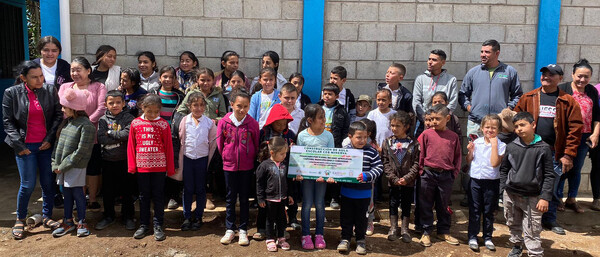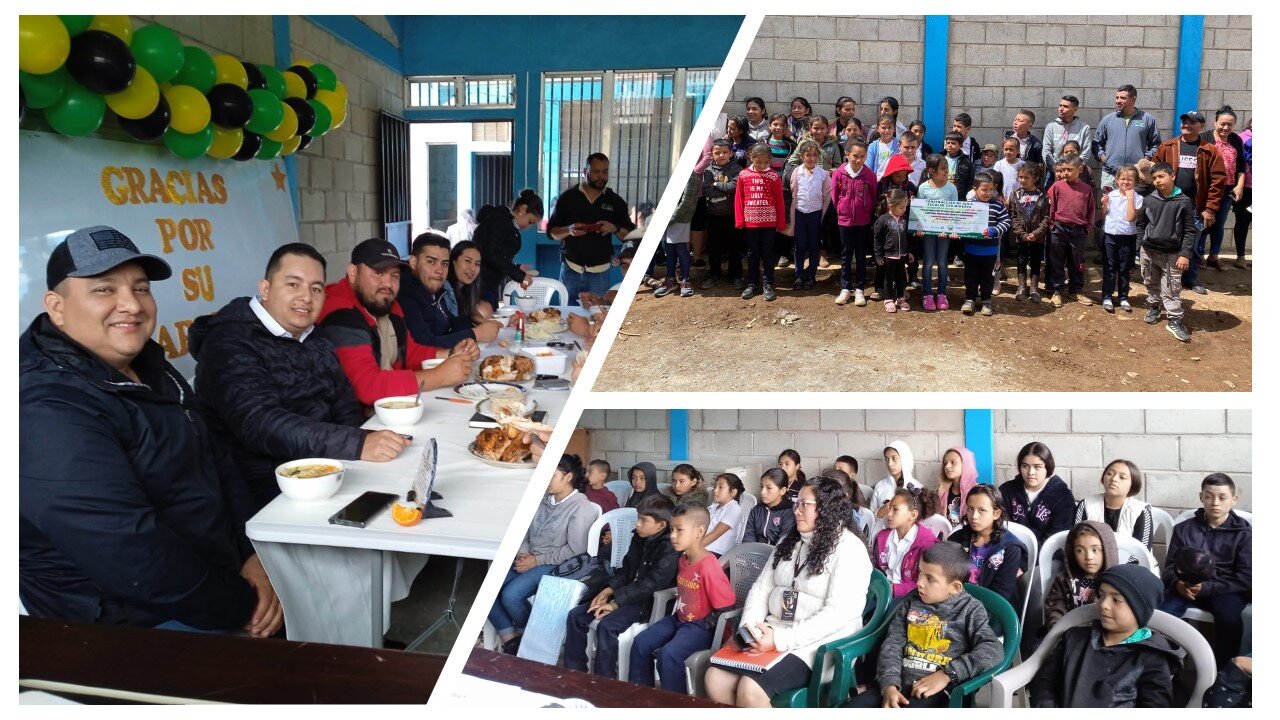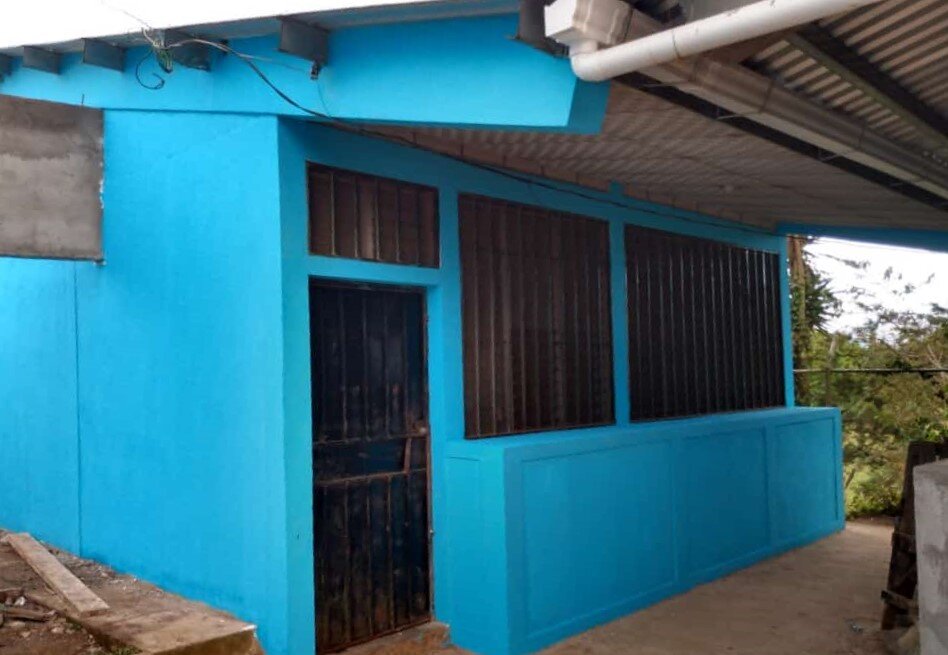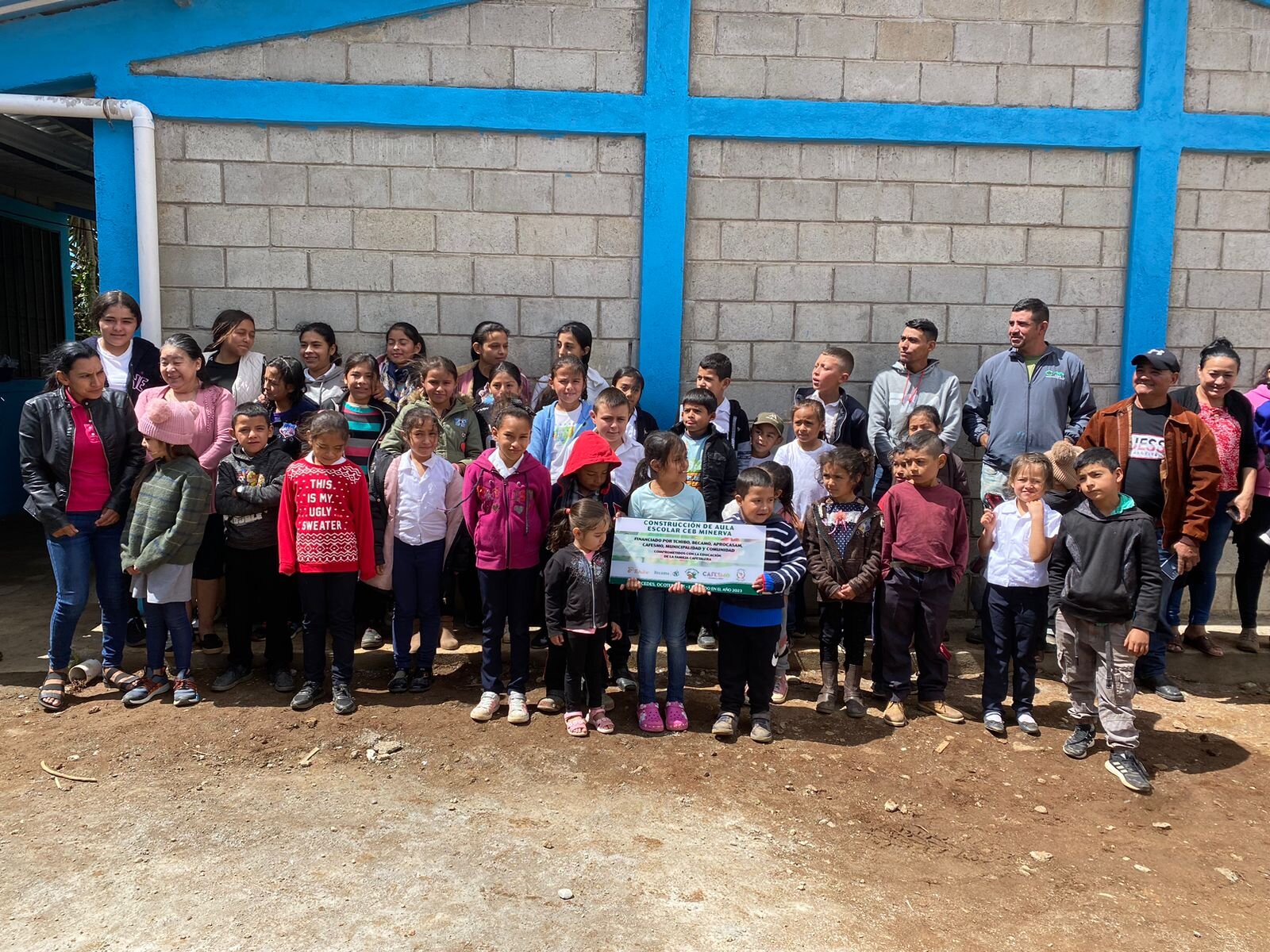
The Tchibo Coffee-Country-Programme (3)
Nuevos caminos: Fruit trees and childcare
One of our most important coffee supplier countries is located in Central America: Honduras. Situated between the Caribbean coast and the Pacific Ocean, Honduras is one of the smallest countries in Central America in terms of area. Amidst the hilly landscape, there are always green plateaus consisting of fertile, volcanic soils. The tropical climate provides sufficient moisture: ideal conditions for growing coffee, which has now become one of the most important export goods. However, the effects of climate change are clearly noticeable and the challenges facing the country are great. This is where we come in together with our project partner Becamo - our aim is to create improved living conditions for the coffee farmers, enable higher yields through more productive agriculture and set up day-care centres for children.
Coffee in Honduras is a real family business with a lot of manual labour. Small farmers cultivate the land and sell their yields to middlemen - or join forces in cooperatives. They face many challenges in the process: Poverty, the resulting child labour and the consequences of climate change are causing them problems. We want to support the families in tackling these challenges from the ground up.

We have been working with project partners in Honduras since 2018. Over the years, we have gained valuable experience. Stable, comparable data that is as independent as possible provides us with the basis for programmes that work. This enables us to take targeted and effective action.
It is important to take a holistic view of the challenges on the ground. Because many people are leaving Honduras and migrating to the USA, for example, the country lacks labour. This is compounded by poverty and a lack of access to education, which is one of the main causes of child labour. The coffee cherries are harvested between October and February - the long school holidays in Honduras also fall during this time. Because there is no holiday care, many farmers and plantation workers have to take their children with them to the coffee plantations. They then play unsupervised in the fields or help with the harvest. In cooperation with Becamo, Tchibo offers childcare facilities. Qualified staff look after the children in specially equipped day care centres. Here they receive meals and can take part in educational activities. To our delight, the daycare centres are very well received.

Of course, we also need to tackle the causes of child labour. Together with the International Labour Organisation of the United Nations (ILO), we are committed to improving the living conditions of farming families. Together with Becamo, we are therefore currently focussing on increasing productivity and quality on coffee farms.
Our concept: We also plant fruit trees in the coffee fields. These provide shade and thus promote the growth of the coffee plants. This has a double benefit: The farmers can harvest and sell both more and better quality coffee. In addition, the harvest of avocados, bananas and citrus fruits provides them with additional food and sources of income. This increases their independence from price fluctuations. It is a method that we have been using increasingly in Honduras since 2022.
Nevertheless, the measures taken so far are not enough to enable small farmers to break out of the cycle of poverty. Too often, they have to use their small profits to cover basic needs instead of investing them in economically viable, forward-looking and value-adding measures to increase productivity. Further measures are therefore needed.

The Coffee-Country-Programme in Honduras in brief:
- Honduras is one of the most important coffee countries in Central America
- Small in area, but very fertile
- Problems: climate change, poverty, child labour, emigration
- Our approach: Higher yields through more productive agriculture, childcare
- Planting fruit trees in coffee fields
- Diversification and shade cultivation